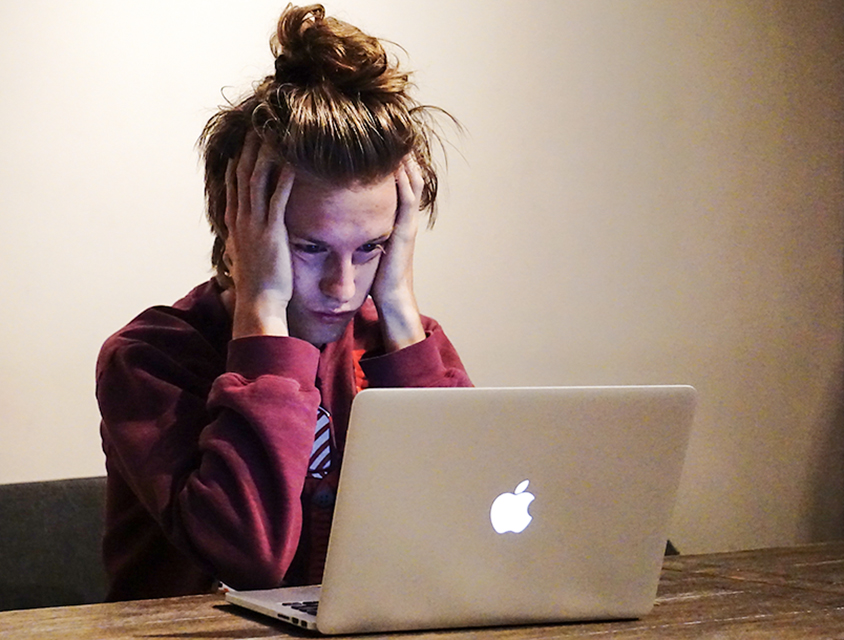That dreaded file makes its way to the top of the notification system, finally grabbing students’ attention and plaguing desktops in a whoosh of worry and weariness — the syllabus. While many believe the syllabus outlines assignments far off, those with a clear understanding of the exponential nature of semester timing begin work as soon as humanly possible.
Working Ahead
Many begin assignments before the class fully kicks in, such as junior art major Emily Hayashida. Having received all this semester’s books in advance for her Torrey Honors Institute course, she dutifully began reading them over the summer to get ahead before falling behind. Her personal motto rests on reading at least half of the coming semester’s books in advance.
“It just gives mental space. Having a cushion is really helpful. I feel like starting off on the foot of ‘Oh, I’m a little ahead’ keeps my stress down and when you’re less stressed you can rest better. Then, I feel like you’re able to be more productive and use your time better. So it’s like this cycle, this good cycle,” Hayashida said.
Very Little Quality Activity
Erik Thoennes, professor of theology, advises students similarly, though he admits most students look at their busy lives with a contorted lens. While some tend to overemphasize the responsibilities they have chosen to involved themselves in, more claim busyness when very little of their time is spent on quality activity.
“There are students at Biola who try to do way more than any finite human should. Way more. I look at your daytime and you must think you’re omnipresent,” Thoennes said. “Busyness of soul is bad. Busyness of activity isn’t necessarily bad. The key is to have a life with the Lord where you can have a settle-ness of soul even in the midst of lots of activity… Busyness is like perfectionism. It’s one of those faults we’re actually proud of.”
Brianna Smith, senior biblical studies major, has had her fair share of managing her scholarship as well as her social and career life. Thoennes’ current and past teaching assistant, she also balanced the responsibility last year of taking 18 units and mentoring a floor of women in Blackstone Hall as a resident advisor.
“It’s hard to discern what is the most important thing to spend your time on,” Smith said. “How to have a healthy self while doing my job well, and being a good student and trying to be a good friend and trying to be there for my residents.”
A Healthy Balance
Constantly attempting to find a healthy balance, Smith found herself stressing over things that mattered to her but seemed of little importance in comparison to her overall mental health. She stresses self-care as one of the more significant practices in the midst of overwhelming business.
“Reminding myself that sleep is one of the most important things I can do. It’s easy for me to go, ‘Oh, sleep is not actually productive, so that’s the first thing I’m going to cut out of my life,’” Smith said. “That’s one of my mottos in life — it’s okay not to be okay.”
Smith took professor Jonathan Lunde for Greek last year, often feeling more overwhelmed in classes than other obligations. Since she oftentimes considered herself rooted in her performance as a student, not doing well made things worse on a cyclical scale.
“He gave me some of the best advice I have ever received. It was like, ‘The Christian life is not about excelling, it’s about being faithful.’ So you just have to breathe through and think about what being faithful looks like throughout the semester, in all your different roles,” Smith said. “At Biola it’s easy to play the ‘I’m busy but I’m great!’ card. Being busy isn’t a virtue… It’s about honoring the Lord by doing your best.”







